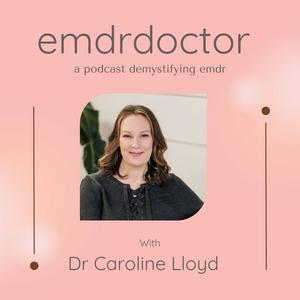48. The Vortex of Violence: EMDR for Family Violence trauma
This week, I want to share something powerful that I recently learned at an EMDR Association of Australia training event. It’s a new way of looking at violence against women — not just through the cycle of violence, which many of you might already know, but also through the vortex of violence model, which offers a deeper understanding of how violence impacts survivors over time.
As a therapist working with women who’ve experienced trauma, I’ve seen how naming and understanding these patterns can be life-changing. When survivors recognize the cycle and the vortex, they often feel relief — because it’s no longer just “their fault,” but part of a much larger pattern.
In this episode, I’ll walk you through both models, explain how they can help survivors understand their experience, and share how EMDR therapy can support healing by restoring safety, strength, and self-worth.
In This Episode, You’ll Learn:
Why violence in relationships so often follows a cycle — and how to recognize the phases.
How the “vortex of violence” explains the losses survivors face, from health to confidence to relationships.
Why education is vital: understanding these frameworks can give survivors knowledge and language to protect themselves.
How EMDR can help survivors process trauma, release fear and grief, and rebuild a sense of safety and strength.
Key Highlights:
The cycle of violence: what it looks like and why it keeps repeating.
The vortex of violence: a new model that shows how violence spirals, pulling in safety, trust, and health while spinning off hope and stability.
How recognizing these patterns can empower women to understand it’s not their fault and spot the signs earlier.
The role of EMDR therapy in healing after violence — restoring confidence, rebuilding self-worth, and helping women feel safe again.
Resources Mentioned:
Dr. Lloyd’s Heal Your Past online EMDR program – Register at emdrdoctor.com.au/heal
Research on PTSD treatments and why EMDR is faster and more effective than traditional talk therapy for trauma
Contact and Feedback:
Thinking about trying EMDR for PTSD? Reach out to Dr. Lloyd at emdrdoctor.com.au.
Note: This podcast provides general information and is not a substitute for individual medical advice. Always consult your healthcare provider for personalised recommendations.
Subscribe & Stay Connected:
Don’t miss next week’s episode — we’ll be exploring even more about how EMDR can shape our lives and relationships. You won’t want to miss the insights.
Each episode is packed with expert insights, real stories, and practical tools to help you on your path to recovery.
And if you’d like to put a face to the voice, come join me on YouTube. Sometimes seeing the person behind the mic makes the connection feel a little more real — and who knows, it might even give you the nudge you need to book your own session.
Join Dr. Caroline Lloyd as she demystifies PTSD and provides hope for recovery, showing that healing is possible with the right tools and support.
Please reach out if you need help:
Police 0001800 RESPECTKids helpline 1800 55 1800Men's Referral Service 1300 766 491WIRE (Women's Information and Referral Exchange) 130013413013YARN 13 92 76


